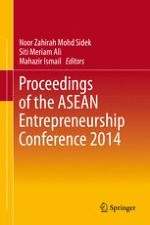2016 | OriginalPaper | Buchkapitel
2. A Study on the Relationship Between Fun at Work and Work Engagement
verfasst von : Mohd Fazil Jamaludin, Abdul Majeed Ahmad, Azlyantiny Mohammad, Nor Diyana Mohammed Shobri
Erschienen in: Proceedings of the ASEAN Entrepreneurship Conference 2014
Verlag: Springer Singapore
Aktivieren Sie unsere intelligente Suche, um passende Fachinhalte oder Patente zu finden.
Wählen Sie Textabschnitte aus um mit Künstlicher Intelligenz passenden Patente zu finden. powered by
Markieren Sie Textabschnitte, um KI-gestützt weitere passende Inhalte zu finden. powered by
